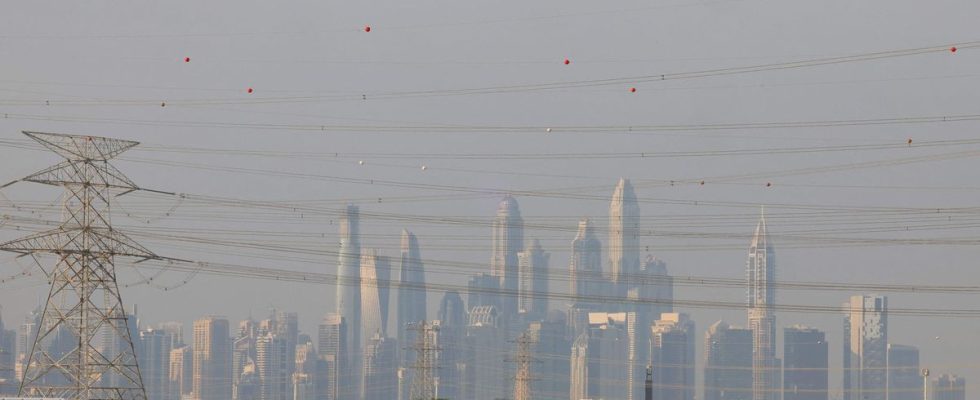Host country of COP28, the Emirates are not an example when it comes to air quality. According to the NGO Human Right Watch (HRW), Dubai is the scene of particularly polluted air. Emissions linked to hydrocarbon production in the Gulf state “contribute to toxic air pollution which has a devastating impact on human health, even as the UAE government wants to position itself as a world leader on climate issues and health at the UN conference” in Dubai, denounces the human rights organization in a report published Monday.
According to her, data collected last September in the territory reveals an “alarming” level of concentration of PM2.5 microparticles, almost three times higher on average than the daily thresholds recommended by the World Health Organization (WHO). . The Emirati authorities attribute poor air quality to frequent dust and sand storms in the region, while a study dating from 2022 shows that emissions originating in particular from the fossil fuel industry contribute “significantly” to the phenomenon, continues long.
More and more fossil fuels
The United Arab Emirates, the world’s seventh largest crude producer, plans to invest $150 billion by 2027 to increase its oil and gas production capacity. “The muzzling of civil society by the UAE authorities means that no one can publicly express their concerns, let alone criticize the government’s failure to prevent these dangers,” says HRW environment director Richard Pearshouse, quoted in the press release.
The Emirates are often singled out by human rights organizations for restrictions imposed on freedom of expression and the repression of political opponents. The HRW report is based on interviews with scientists, experts and activists. The NGO also collected testimonies from a dozen particularly exposed immigrant workers, who claim to have not been informed of the risks associated with the presence of pollutants.

